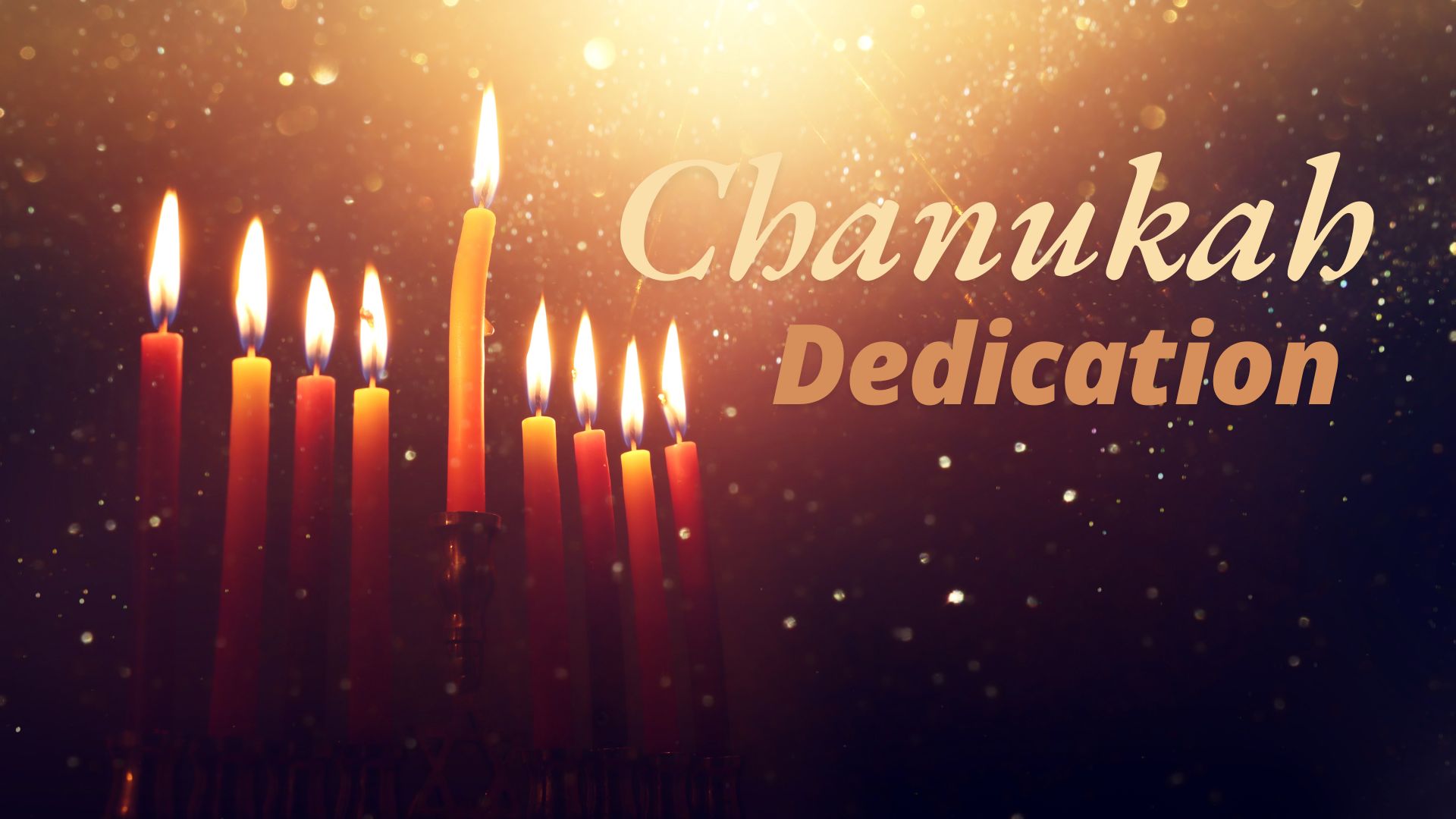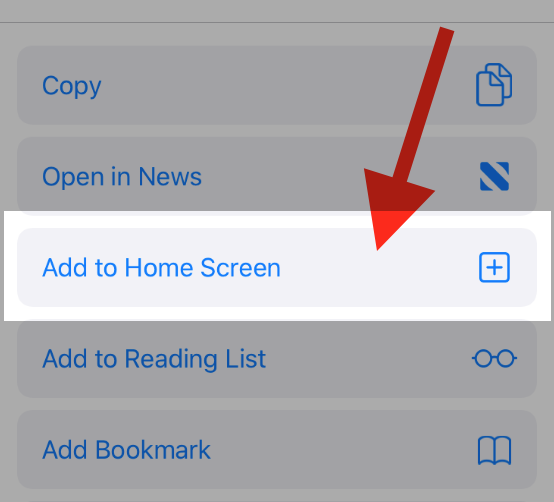
The leaders offered the dedication offering for the altar when it was anointed, so the leaders offered their offering before the altar. - Num 7:10
Chanukah honors the Holiness of God’s altar of worship. It is also about anointing and sacrifice. The anointing is the separation of someone or something as holy, dedicated to the Lord. In this way, Chanukah is a forever process of dedication and rededication of our hearts to Him.
This is the message of the end times in many ways. We have all of the ingredients. Pagan rule of the world, a universal, non-judgmental Gospel. An antiChrist, anti-messiah, a counterfeit peace brought bout by military might and fear. And a sell-out of the true worship of God with a replacement theology that sought to change the later go God to a universal altar. The issue is dedication, Chanukah. Let’s read about the perspective of dedication in Matthew 6:23-25
"But if your eye is unsound, your whole body will be full of darkness. If then the very light in you [your *conscience] is darkened, how dense is that darkness! No one can serve two masters; for either he will hate the one and love the other, or he will stand by and be devoted to the one and despise and be against the other. You cannot serve God and mammon (deceitful riches, money, possessions, or *whatever is trusted in). Therefore I tell you, stop being *perpetually uneasy (anxious and worried) about your life, what you shall eat or what you shall drink; or about your body, what you shall put on. Is not life greater [in quality] than food, and the body [far above and more excellent] than clothing?" Matthew 6:23-25 (AMP)
The Chanukah story is simple and preceded the incarnation and salvation of Messiah by 160 years. Daniel prophesied in chapter 8 that out of the Greek world kingdom of Alexander, there would arise 4 smaller kingdoms and one of these, ruled by Antiochus Epiphanies, would desecrate the Temple and force convert all peoples to one world religion. Daniel 8:21-25
"The shaggy goat represents the kingdom of Greece, and the large horn that is between his eyes is the first king. "The broken horn and the four horns that arose in its place represent four kingdoms which will arise from his nation, although not with his power. "In the latter period of their rule, When the transgressors have run their course, A king will arise, Insolent and skilled in intrigue. "His power will be mighty, but not by his own power, And he will destroy to an extraordinary degree And prosper and perform his will; He will destroy mighty men and the holy people. "And through his shrewdness He will cause deceit to succeed by his influence; And he will magnify himself in his heart, And he will destroy many while they are at ease. He will even oppose the Prince of princes, But he will be broken without human agency. (Dan 8:21-25)
Let me read a summary of this history from James Capo, a notable bible teacher:
In the year 167 B.C., the worship of God in Judea was on the edge of extinction, ready to be wholly swallowed up by pagan Greek worship being forced on the people by the powerful ruler of Syria and Judea, Antiochus IV, also known as Antiochus Epiphanies. This title meant "Illustrious," but his rule was more gruesome than glorious, as he inflicted intensely cruel punishments and death on any Jew who remained faithful to the worship of God.
But God would prove faithful to those among His people who remained loyal to Him. He had foretold through the prophet Daniel that great troubles would come on the people of Judah, but He also foretold their deliverance in one of the most detailed and astonishing prophecies recorded in the Bible!
The story begins:
In preparation for an attack against Egypt, King Antiochus had to unify and strengthen his vast territory, especially his southern border of Judea, which would be the staging area for a push into Egypt.
Part of his plan involved a Jew named Menelaus, who had bribed his way into the office of high priest of the Jews with the promise of high tribute payments and the assurance that he would assist the king in "hellenizing" the Jews; that is, encouraging them to adopt the Greek (Hellenistic) culture.
Though the Jewish leaders at first thought they could Hellenize their community while still retaining their unique form of worship, the people perceived pagan Hellenism as a threat. While many in leadership positions within the Jewish community were quick to adopt the trappings of Greek culture, the general populace was slow to follow.
The king grew frustrated, needing to act quickly against Egypt and having been misled by this corrupt high priest to think the people would accept hellenization.
Trampling on God's laws
The apocryphal book of 1 Maccabees, a helpful historical resource even though not part of the Hebrew canon of the Old Testament, records events of this tumultuous period. It tells us that Antiochus "wrote to his whole kingdom that all should be one people, and that all should give up their particular customs. All the Gentiles accepted the command of the king. Many even from Israel gladly adopted his religion; they sacrificed to idols and profaned the sabbath" (1 Maccabees 1:41-43)New Revised Standard Version).
Antiochus' edict prohibited observing the weekly Sabbath day and the other biblical feast days. Reading the Torah was outlawed, and all copies of it were ordered to be burned. Temple sacrifices were forbidden; circumcision was outlawed. The penalty for disobedience was death.
Many Jews chose to die rather than comply with Antiochus' unholy commands. Angered by resistance to his odious laws, and misled into thinking it was just a small group of radicals creating trouble, the king intensified his persecution and cruelty. If an infant were found circumcised, Antiochus decreed that his family and the person who did the circumcision would be put to death and the infant would be hung from the neck of his dead mother (verses 60-61).
Then, on the 25th day of the month Kislev, 167 B.C. (corresponding to late November or early December of our modern calendar), Antiochus profaned the temple of God in Jerusalem. Ordering an end to the morning and evening sacrifices offered to the true God, he rededicated the temple to the pagan Greek god Zeus and apparently set up an altar bearing the image of this pagan god over the temple altar. Then, in spiteful sacrilege to the Jews, he had swine sacrificed on the altar.
Revolt against Antiochus' rule
Meanwhile, in the mountains 17 miles to the northwest of Jerusalem, a popular revolt was brewing. In the town of Modin, the aged priest Mattathias had refused to offer the pagan sacrifice that was being required of him. He slew an apostate Jew who was about to do so in his stead, killed the king's commissioner, pulled down the altar and fled into the hills with his five sons.
Faithful Jews began rallying to this family of priests. They soon began to wage a guerrilla war against their oppressors—a David-and-Goliath battle with the small band of faithful loyalists taking on the military might of the Syrian army and their traitorous Jewish collaborators. The Jewish historian Josephus records in his Wars of the Jews that Antiochus sent an army of horsemen, elephants and 50,000 foot soldiers against them.
During the war, Mattathias died. Leadership fell to his third son, Judah or Judas, who was called "Maccabeus"—from the Hebrew word for "hammer." A cunning military strategist, Judah led his followers in bold, hard-hitting attacks that routinely routed the larger and better-equipped Syrian forces. Judas' title of "Hammer" was soon transferred to the entire family of priest-warriors, and the war came to be known as the Maccabean Revolt. (These "Maccabees" were also known as the Hasmoneans, after Mattathias' great-great-grandfather Hasmoneus.)
After three years of battle, and against seemingly impossible military odds, the Maccabees succeeded in recapturing the temple and most of Jerusalem in December 164 B.C. Anxious to reestablish the worship of God, Judah ordered the loyal priests who had not collaborated with Antiochus to cleanse the temple and erect a new altar.
The date was 25 Kislev, 164 B.C., three years after Antiochus had defiled the temple and made it an abomination. Now they were free to again worship God in peace! The Maccabees fought on until they drove the Syrians from Judea and finally gained political independence from Syria, as well as religious freedom.
With their victory, the stage was set for the prophesied first coming of Yeshua to His people. God blessed the efforts of the faithful few and preserved the Jewish nation, the temple and the people for Messiah to come to—as prophecy required. God proved faithful to His Word, and to those who put their trust in Him.
The Hanukkah celebration
According to Jewish tradition, at the rededication of the temple only one undefiled container of oil could be found to use in the Holy Menorah in the temple—enough to burn for only one day. Miraculously, though, the flame in the Menorah continued for eight days—long enough for a new supply of oil to be prepared for this holy use!
In commemoration of these events, many Jews today celebrate Hanukkah (which means "dedication"), also known as the Festival of Lights.
By the time of Messiah the Jews were again a subject people—this time to the Romans—and they were again looking for a leader, the Messiah, to deliver them. And it was during this very festival that the Jewish leaders asked Jesus if He was that promised Deliverer!
Notice John 10:22-28
Now it was the Feast of Dedication in Jerusalem, and it was winter. And Jesus walked in the temple, in Solomon's porch. Then the Jews surrounded Him and said to Him, 'How long do You keep us in doubt? If You are the Christ, (the Messiah) tell us plainly.' Jesus answered them, 'I told you, and you do not believe. The works that I do in My Father's name, they bear witness of Me. But you do not believe, because you are not of My sheep, as I said to you. My sheep hear My voice, and I know them, and they follow Me. And I give them eternal life, and they shall never perish; neither shall anyone snatch them out of My hand.'"
Jesus pointed them toward a much greater deliverance than that of Judas Maccabeus! It wasn't the answer the people wanted to hear, but it was the answer they needed to hear. Jesus Christ would deliver His sheep, those who would listen to Him and obey Him, not from Rome, but from the slavery of sin and death. He would lead them to eternal life in the Kingdom of God!
What Judas Maccabeus did for the Jews, Jesus Christ will do for Israel and the whole world when He returns a second time, delivering humanity from an evil ruler and from sin itself.
So, Chanukah is about deliverance, dedication of the altar, a pure anointing and miraculous provision to those are dedicated. God delivers His people!
We need to stand for Him in these hours of the return of the Antiochus spirit of one world government and the dilution of our faith and the pollution of our altars with the Zeus of today.
God is looking to the Judah Maccabees of today. Look at Luke 18:7-8
Now, will not God bring about justice for His elect who cry to Him day and night, and will He delay long over them? "I tell you that He will bring about justice for them quickly. However, when the Son of Man comes, will He find faith on the earth?" (Luke 18:7-8)
This is the hour of deliverance and the Temple needs to be cleansed. We need to search our hearts and see what pagan idols under the guise of tolerance have we allowed into our worship of Him. And we need to cleanse the altar. How? by sacrifice and thanksgiving. Look with me at Ezra 6:16-17:
And the sons of Israel, the priests, the Levites and the rest of the exiles, celebrated the dedication of this house of God with joy. They offered for the dedication of this temple of God 100 bulls, 200 rams, 400 lambs, and as a sin offering for all Israel 12 male goats, corresponding to the number of the tribes of Israel. (Ezr 6:16-17)
Now Yeshua is our sin offering. Yet I believe that we, need to present to the Lord a special offering for the dedication of our spiritual temples, our hearts in the Feast of Dedication. As we light the Menorah, over the designated 8 days, and we give gifts to each other, let’s remember to honor Yeshua who is our shamash candle, the servant fire who lights the full house of the Lord. he makes us all One in Him, a whole Menorah and deserves the best we have to give to Him in Spirit and in Truth.
Activation: We are constantly facing Antiochus in our culture. The goal is to desecrate the altar of God. There will literally be a third Temple in Jerusalem and a literal antichrist who will declare Himself as God. Many, even in the Church, will accept this heresy. What prepares it is the slippery slope of seeking unity in faith. Yet Yeshua tells us He came to divide.
“"Do not think that I came to bring peace on earth. I did not come to bring peace but a sword. For I have come to 'SET A MAN AGAINST HIS FATHER, A DAUGHTER AGAINST HER MOTHER, AND A DAUGHTER-IN-LAW AGAINST HER MOTHER-IN-LAW'; and 'A MAN'S ENEMIES WILL BE THOSE OF HIS OWN HOUSEHOLD.' He who loves father or mother more than Me is not worthy of Me. And he who loves son or daughter more than Me is not worthy of Me. And he who does not take his cross and follow after Me is not worthy of Me.” (Mat 10:34-38, NKJV)
Ask the Lord to show you what compromises you may have made for a semblance of peace. In this season of lovey covey, it is time to be the light that shines in the darkness boldly!
Testimonials
Nancy L
Nancy L
Heading
To add this web app to your homescreen, click on the "Share" icon
![]()
Then click on "Add to Home"

To add this web app to your homescreen, click on the "Share" icon
![]()
Then click on "Add to Home"

It looks like your browser doesn't natively support "Add To Homescreen", or you have disabled it (or maybe you have already added this web app to your applications?)
In any case, please check your browser options and information, thanks!
It looks like your browser doesn't natively support "Add To Homescreen", or you have disabled it (or maybe you have already added this web app to your applications?)
In any case, please check your browser options and information, thanks!




Comments for